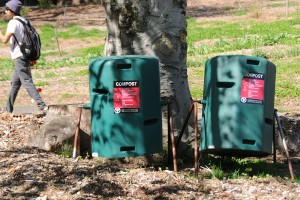Wesleyan Joins New England Colleges’ Effort to Reduce Food Waste
Twenty-three colleges and universities in New England, including Wesleyan, have joined an EPA effort to cut the amount of food that goes to waste. This doubles the participation of EPA’s Food Recovery Challenge in 2013, since 11 New England colleges and universities were already participating in the challenge. In 2011, these schools recovered a total of 4,538 tons of food.
The partnership, which was announced in honor of Earth Day, aims to reduce the 1.64 million tons of food wasted each year in the six New England states. EPA’s Food Recovery Challenge, encourages organizations to reduce, donate, and recycle as much of their excess food as possible, which saves money, feeds the needy, and helps protect the environment–the triple bottom line. By joining the challenge, Wesleyan pledges to reduce food waste disposed on campus.
“The EPA Food Recovery Challenge will help us to benchmark our food waste and increase recovery of food through expanded food donation, composting, and other initiatives,” said Jen Kleindienst, sustainability coordinator. “We’re excited to be a part of this effort and look forward to working with Bon Appetit and the campus community to make this great.”

Wesleyan is already undertaking a number of efforts to reduce food waste. Last year, the university composted about 3.5 tons of pre-consumer food waste from Usdan University Center and student residences. This year, the pre-consumer program has collected nearly 5 tons.
Additionally, in March, Wesleyan began composting all post-consumer food waste in Usdan Marketplace.
“In its first month, we have diverted nearly 5 tons of food scraps from the incinerator,” Kleindienst said. “If this program continues to be successful, the Sustainability Office hopes to expand it to other campus dining locations.”
Food Rescue, a Wesleyan student group, strives to reduce the amount of food regularly wasted and thrown out in campus dining halls and reallocate it to those who suffer from hunger and homelessness in the Middletown community. Student volunteers collect food that is normally wasted from Pi Cafe, Summerfields, and Usdan and take it to Eddy Shelter.
Students also organize, prepare and participate in community dinners at the shelter.

